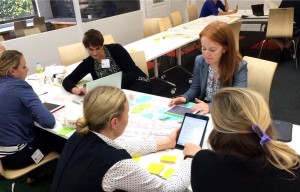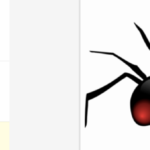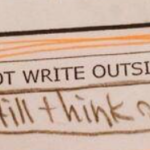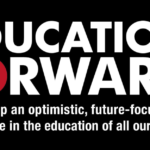 I write this from Sydney airport, where I’m waiting to fly home after another fascinating and enjoyable trip working with a whole range of schools and speaking at conferences. The trip has reaffirmed my belief that the sustainable future of schooling lies, not in following top-down edicts, but in schools working collaboratively to self-improve.
I write this from Sydney airport, where I’m waiting to fly home after another fascinating and enjoyable trip working with a whole range of schools and speaking at conferences. The trip has reaffirmed my belief that the sustainable future of schooling lies, not in following top-down edicts, but in schools working collaboratively to self-improve.
At the start of the trip I spoke at the New South Wales Conference for government schools held in Sydney’s former Olympic stadium. Alongside two great keynoters (Richard Gerver and Dan Haesler) I did my bit, and people seemed to like it. But, for me, the real highlight was hearing from schools in NSW who were honestly sharing their innovations – what worked, what they’d learned from what didn’t work. There’s some great dedicated teachers and leaders in NSW public schools, and it was great that the department had given them such a great venue, and a platform to show what they’d been working on.
I followed this by speaking at telecoms giant Telstra’s Education Now conference. Here was a learning commons in action. I met learning analysts, Telstra comms experts and other edu-tech companies and lots of educators who recognise that schools alone can’t innovate at the rate they need to (in order to keep pace with social learning) unless they join forces with the allies that they have in these associated disciplines. It was a great few days, and I sense that Telstra are in it for the long haul, not just to sell ‘kit’.
As much as schools need those external challengers and supporters, however, what goes on in the classroom is still their domain, and there’s no cavalry coming over the hill, no Superman waiting in the wings. There’s not even a government minister who can tell them how to teach. So, it was especially pleasing to facilitate some workshops (in Sydney, Canberra and Adelaide) where the focus was upon identifying what I call ‘promising practices’, and then seeing how they could be turned into tools that other teachers could use.
At each of these workshops the enthusiasm was palpable. There’s nothing better, to analyse your own practice, than to see how you’d transfer it to another professional’s practice – so creating tools is a really useful exercise. We called this a tools ‘hackathon’, in part inspired by Mark Zuckerberg’s Facebook hackathons where people across disciplines would spend intensive week-ends together, fixing bugs or testing out new apps.
And what practices these teachers worked on! Here’s just a sample of the tools these educators started to produce:
A guide to how to run student-led conferences in order to replace the one-sided, grades-dominated conversations that parents usually have with teachers;
An app that supports teachers of students with particular needs in setting appropriate goals and suitable interventions;
A simple guide to risk assessment that is carried out by primary children (rather than telling them ‘this is safe/this is not safe’);
A guide to co-constructing assessment rubrics with students (so they don;t ask ‘why are we learning this?’);
An introduction to nature-based learning for parents of kindergarten kids;
A guide to systematising community connections – how to make the most of employers, parents and community orgs with your school;
Engaging parents and community as co-learners, particularly for parents whose first language isn;t English;
A kit to enable students to carry out their own IT hackathon.
Most importantly, at the end of each day, schools committed to working with each other to see these tools through to completion, and then to testing their effectiveness. Having critiqued others prototypes, most schools were already invested in the emerging tools, so it was no surprise that so many agreed to bring these innovations into their own schools.
How many of these will eventually see the light of day? I’m not sure that matters. After all, one fo the world’s most inventive companies, 3M, has a 50% failure rate, yet still leads its field. So, if even half of these tools make it to ‘market’ it will have been a really useful process.
But the point is this: if we want teachers to continually improve their practice, we have to support them in being learning designers – not just deliverers. And we can only do that by, firstly, making time for these kinds of events and , second, by creating an environment where collaboration, not competition, is rewarded.







Will you be posting links so that we can access these guides? Even in draft form they are likely to be useful.
I’ll certainly try, Kerstyn. But it will depend on when the originating schools feel they’re ready for a public audience. Bit more work needed I think.
Hi David, do you have another trip to Australia planned…in particular Perth, on the west coast? Belinda
Hi Belinda,
I’m currently only there on May 28th, but no plans other than that. I need an invitation!